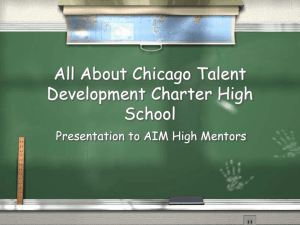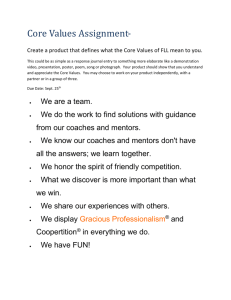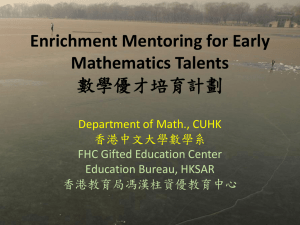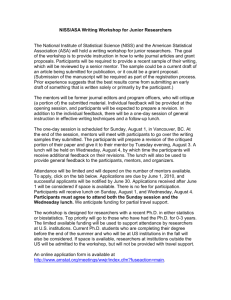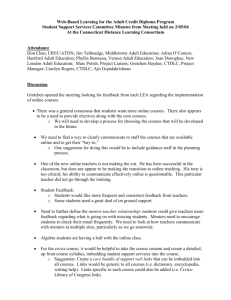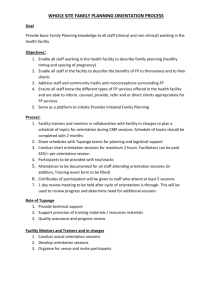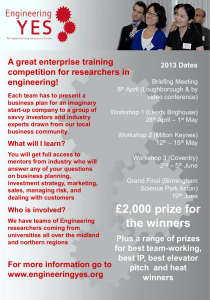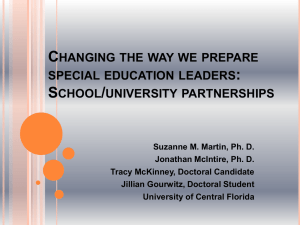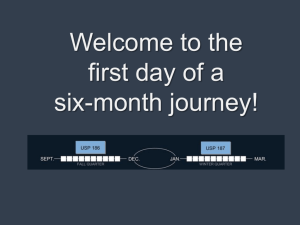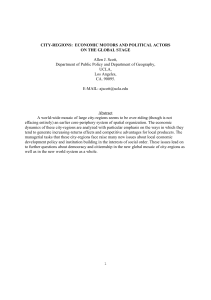Introduction-Sept22-2011
advertisement
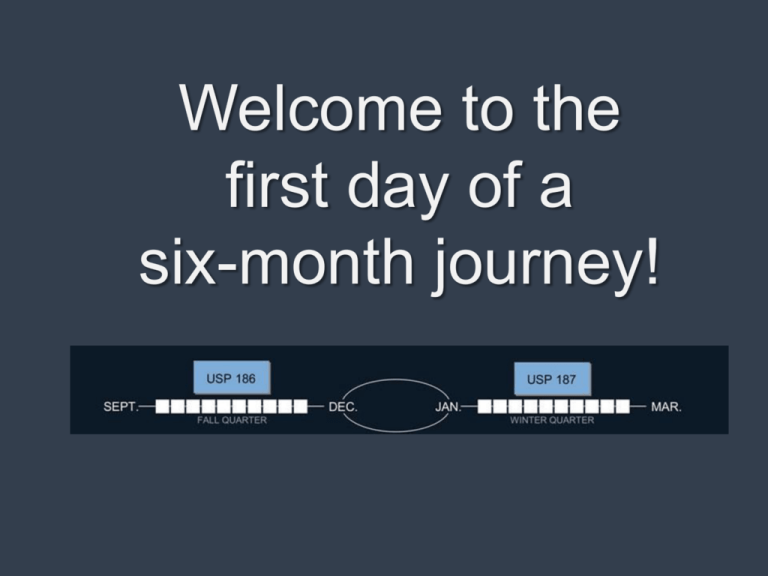
Welcome to the first day of a six-month journey! Contact Us A Perfect Storm? John Beddington, the UK government's chief scientific adviser, warns of a possible crisis in 2030. By 2030 "a whole series of events come together": •The world's population will rise from 6bn to 8bn (33%) •Demand for food will increase by 50% •Demand for water will increase by 30% •Demand for energy will increase by 50% Six Skills We Develop in the Senior Sequence Your timeline Begin with broad questions narrow down, focus in. Proposal OBSERVE Analyze data. Reach conclusions. Senior Research Project Sept. 22, 2011 October November December January February Mar. 15, 2012 Available in the UCSD bookstore: We will use the same books for 186 and 187. All books are on reserve at the Geisel Library Green, Gary P. and Anna Haines. 2012. Asset building and community development. Thousand Oaks: Sage Publications. Marshall, Catherine and Gretchen B. Rossman. 2011. Designing qualitative research. Los Angeles: Sage. Robson, C. 2011. Real World Research: John Wiley & Sons Turabian, Kate L. 2007. A manual for writers of research papers, theses, and dissertations : Chicago style for students and researchers. Chicago: University of Chicago Press. Recommended Reading Hale, Charles R. 2008. Engaging contradictions : theory, politics, and methods of activist scholarship. Berkeley: University of California Press. (recommended, not required) The heart of the matter: Your Student Research Portfolio Supporting Databases •Grand Challenges •Opportunities (Internships/Action Rsh) •Mentors •Research Groups and Teams Student-Mentor Research Teams Each “Research Team” has one or more designated mentors (faculty, researchers and/or professionals). Mentors are asked to: •Play a facilitators role by providing intellectual guidance at the outset of the Senior Sequence (mainly in the form of a short written guide prepared in consultation with the course instructor. The guides are part of the on-line database). •Meet with the student Research Team on three occasions over a six month period: once at the beginning (Oct), middle (Jan) and end (Mar) of the Senior Sequence. •Help compose their student Research Team’s (a) section of the Sustainable City-Regions Reader, and (b) optional 35 minute video vignette. What is Research Team? A Research Team is composed of 2-5 students joined together by common research interests (a Grand Challenge). In a spirit of solidarity and creative networking, each team member is responsible to participate in the following ways: 1. Support one another during the six-month Senior Sequence journey: Sept 2009 to Mar. 2010 (the team will function as a source of critically constructive feedback and encouragement) 2. Seek mutually reinforcing opportunities to collaborate with one another on certain tasks (finding/sharing contacts, reviewing literature, selecting methods, conceptualization, etc.) 3. Create a categorically organized list of readings, web sites, experts, ideas, questions, data, etc. useful for researchers in their domain of investigation (this effort will build on initial input provided by the team’s mentors) 4. Produce a team contribution to the Senior Sequence class of 2010 Sustainable City-Regions Reader (the Reader is a summary of student research highlights, prepared by the mentor , to be published at the end of the Senior Sequence) 5. Optional: Produce a short 3-5 minute video story about their team’s efforts and main lessons learned (technical support and equipment will be provided).
